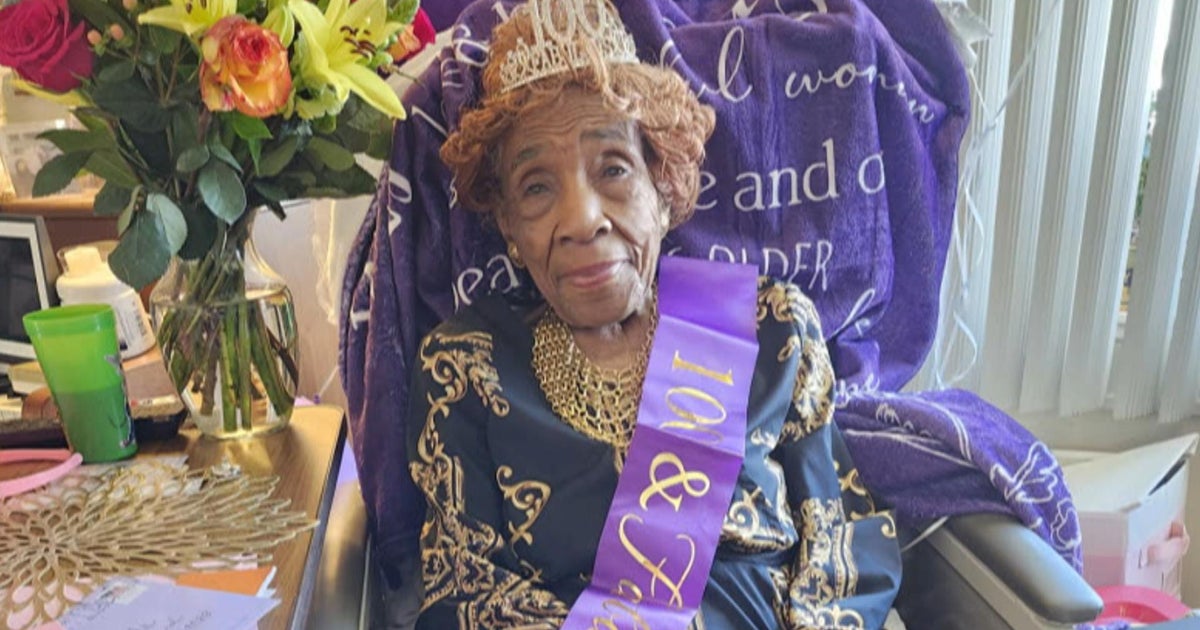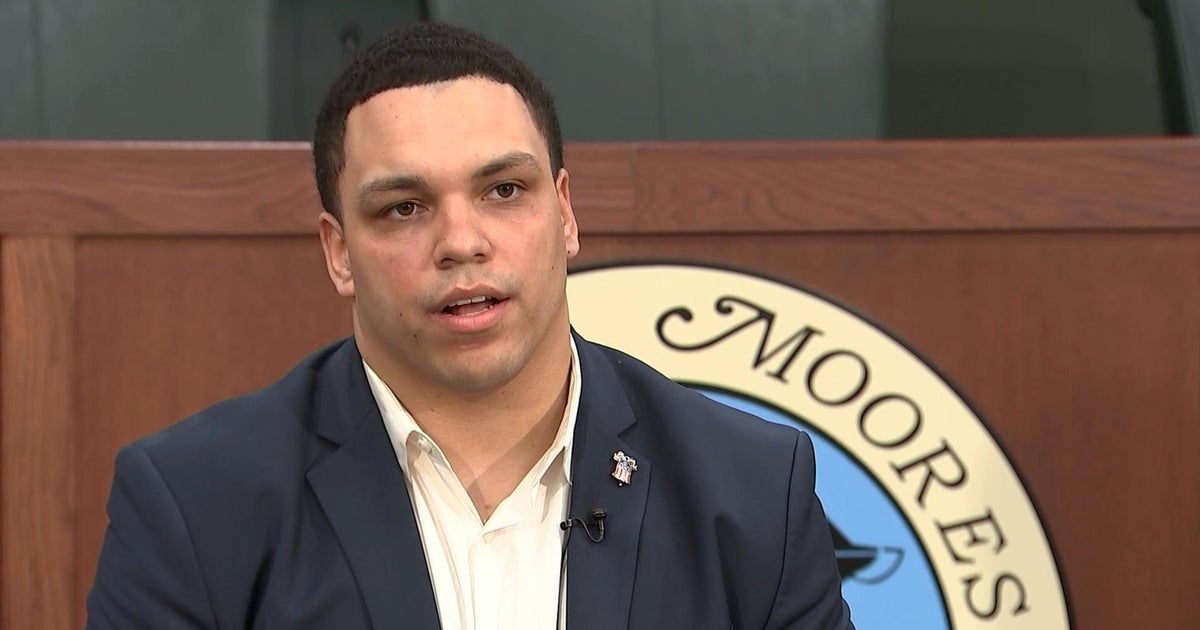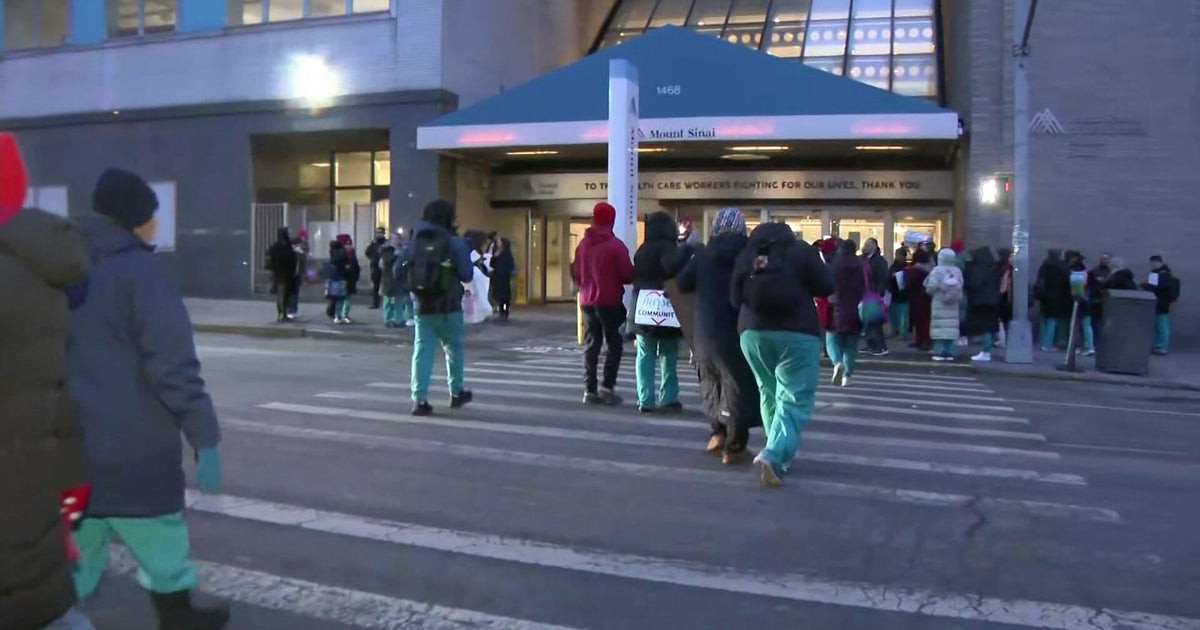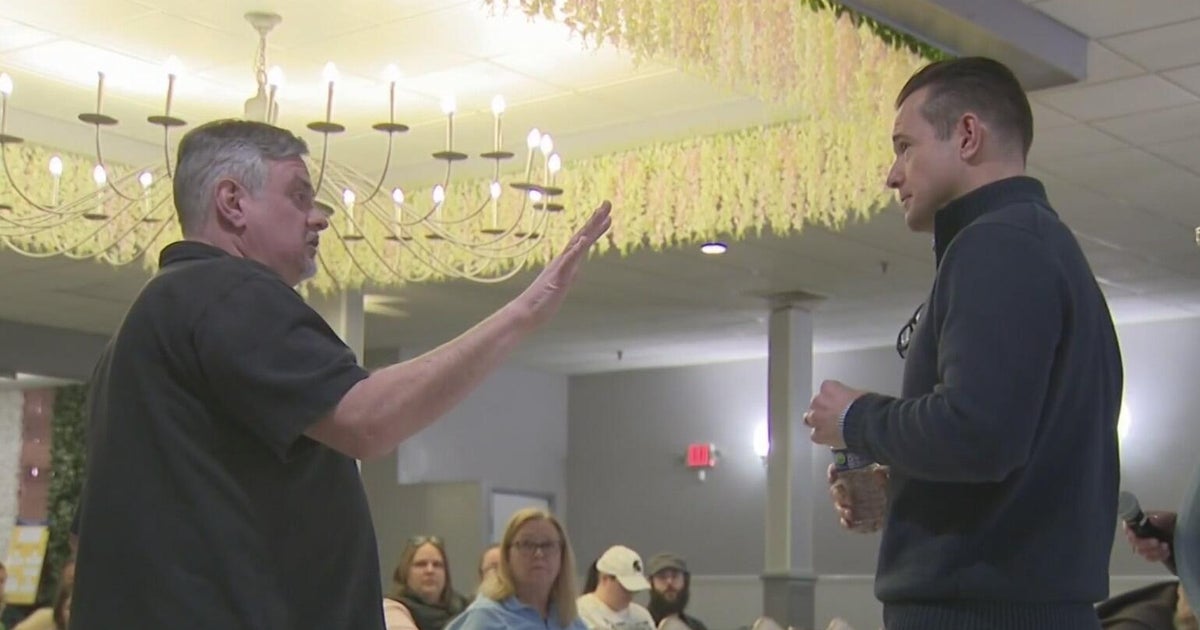Chosen NJ Legislative Map Favors Democrats
NEW BRUNSWICK, N.J. (AP) -- After more than a month of negotiations, the tie-breaking member of an 11-person commission chosen to redraw boundaries for New Jersey's 40 legislative districts has sided with Democrats in approving a new election map.
Rutgers University political science professor Alan Rosenthal announced his decision privately to Democrats and Republicans on Saturday at the Heldrich Hotel in New Brunswick, where members of the commission had been meeting since last weekend.
An official vote by the commission will be taken at the Statehouse on Sunday.
The contentious process of drawing a new map is done every 10 years following the U.S. Census. The stakes were high: In the past 20 years, the political party that prevailed in the process went on to control the Legislature -- Republicans in 1990 and Democrats in 2001.
The new map will be used when all 120 legislators are up for election in November. The deadline for lawmakers to file papers to run is April 11.
The decision was a blow to GOP Gov. Chris Christie, who spent three days this week at the hotel helping Republicans present their case to Rosenthal.
Christie's participation was unusual -- no other governor had so actively taken part in the process. Getting a map that favored Republicans could have helped them win one or both houses of the Legislature, which would give Christie more power to pass legislation that has been stalled by Democrats who control both houses now.
Republicans said they were disappointed, but that the new map was fairer than the one current one. Assemblyman Jay Webber, the lead commissioner for Republicans, maintained that the map was one "Republicans can run in and win."
Webber declined to say whether Republicans would try to file a lawsuit to stop the map, saying they were keeping their options open.
Another commissioner, Bill Palatucci, a close friend and political adviser to the governor, said Republicans were happy to have Christie there. "I think it was a tremendous asset to us," he said afterward.
Christie left the hotel out a side door and didn't make himself available for comment.
Rosenthal also declined to talk about his decision, but he previously has said he was going to consider the importance of allowing voters to retain their current lawmakers in drawing a new map -- something that would benefit Democrats.
Monmouth University political scientist Patrick Murray said that as soon as Rosenthal said that, the writing was on the wall.
"Clearly the dye was cast at that moment ... his concern clearly closed the door for Republicans to gain the advantage," Murray said.
Republicans sought a map that more heavily concentrated minority voters, carving out two Hispanic-majority and two black-majority districts, arguing that it gave minorities a better shot at electing one of their own.
"The feedback that we received from the Asian community, the Hispanic community and the African-American community was very positive," said GOP Assemblyman Kevin O'Toole, adding that Republicans "were on the forefront of developing more opportunities for minority groups."
But in the end, a coalition of minority groups endorsed the Democratic map, saying that overall it provided substantially more "minority opportunity" districts.
"The Democrats engaged in a significant compromise to come to the middle on this map," said state Democratic Party Chairman and Assemblyman John Wisniewski.
Hispanics are New Jersey's largest and fastest-growing minority, increasing by nearly 40 percent in the past decade to more than 17 percent of the state's population. Yet Hispanics lawmakers account for about 6 percent of the Legislature.
The map chosen by Rosenthal generally picks off few incumbents.
Democratic state Sen. John Girgenti was most in danger. His hometown of Hawthorne was moved out of a Passaic County district and into a Bergen County one now held by Sen. Bob Gordon, D-Fair Lawn.
The opening gives Hispanic Assemblywoman Nellie Pou of North Haledon a chance to run for the Senate, where there is currently only one other Latino lawmaker.
Democratic Sen. Richard Codey, D-West Orange, a former governor who has been in the Legislature since 1974, remains in his district but faces more competition as parts of Morris County, which lean Republican, are now a part of it.
GOP Sens. Robert Singer of Jackson and Sean Kean of Wall are also pitted against each other in a new district.
The state's two largest cities, Newark and Jersey City, which were previously split into three districts each, are only split twice.
In an interesting twist, Republicans tried to protect Democrat Brian Stack of Union City -- who has called Christie the "the greatest governor this state has ever had," by leaving his district alone, but Democrats pushed part of his district into Jersey City, where he has less of a power base.
"It was broken up to settle a political score," Webber said of Stack's district.
(Copyright 2011 by The Associated Press. All Rights Reserved.)







